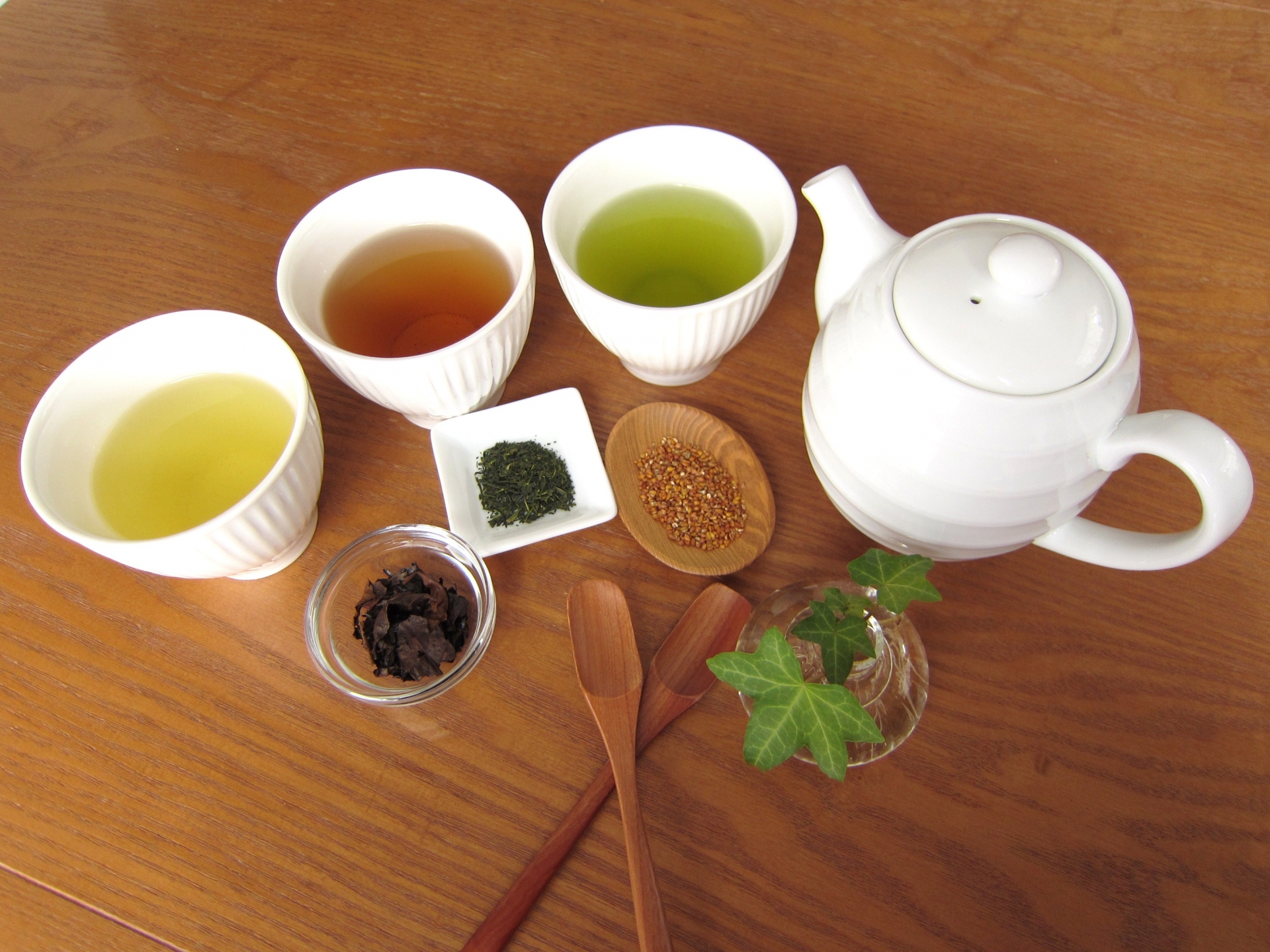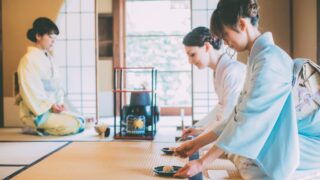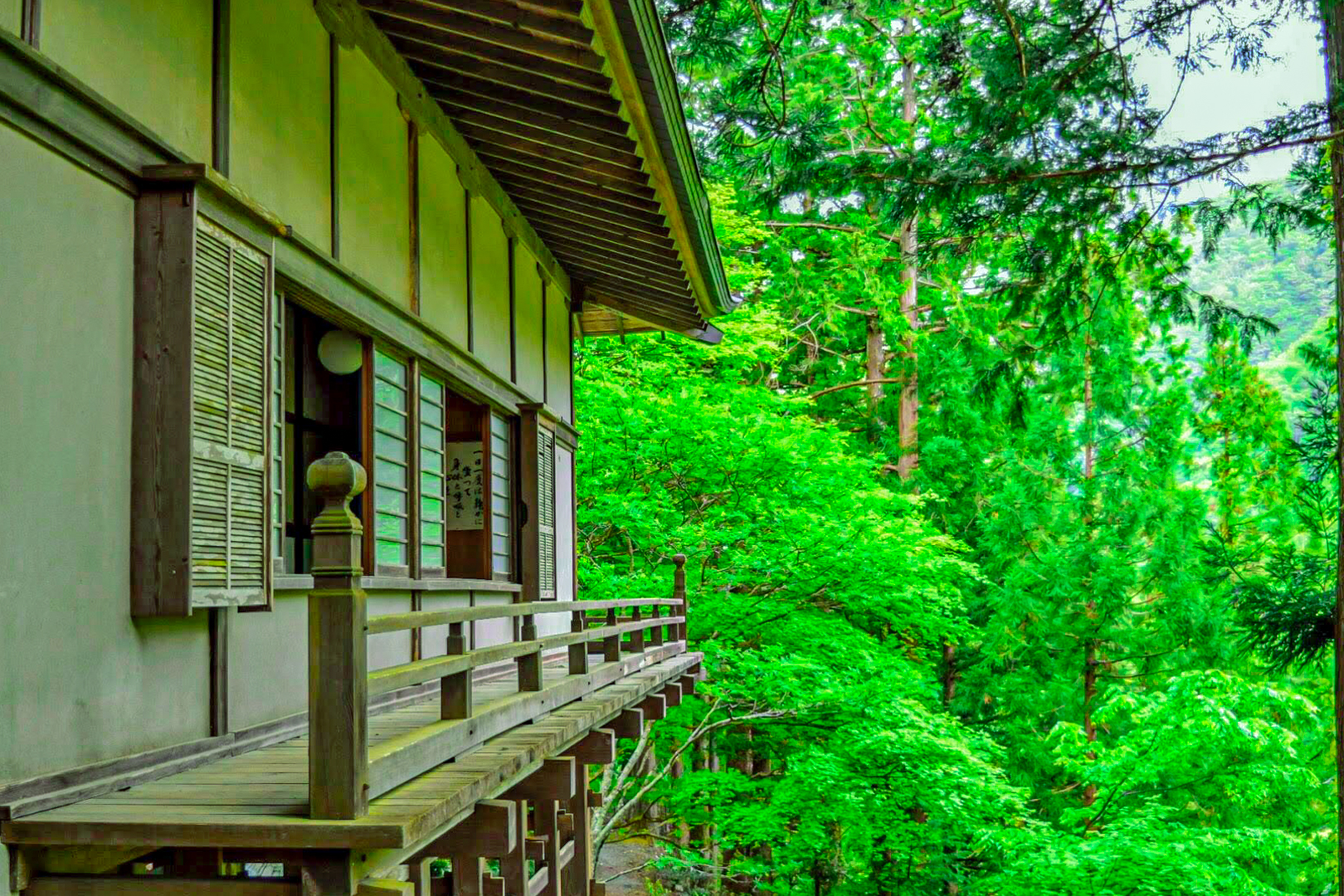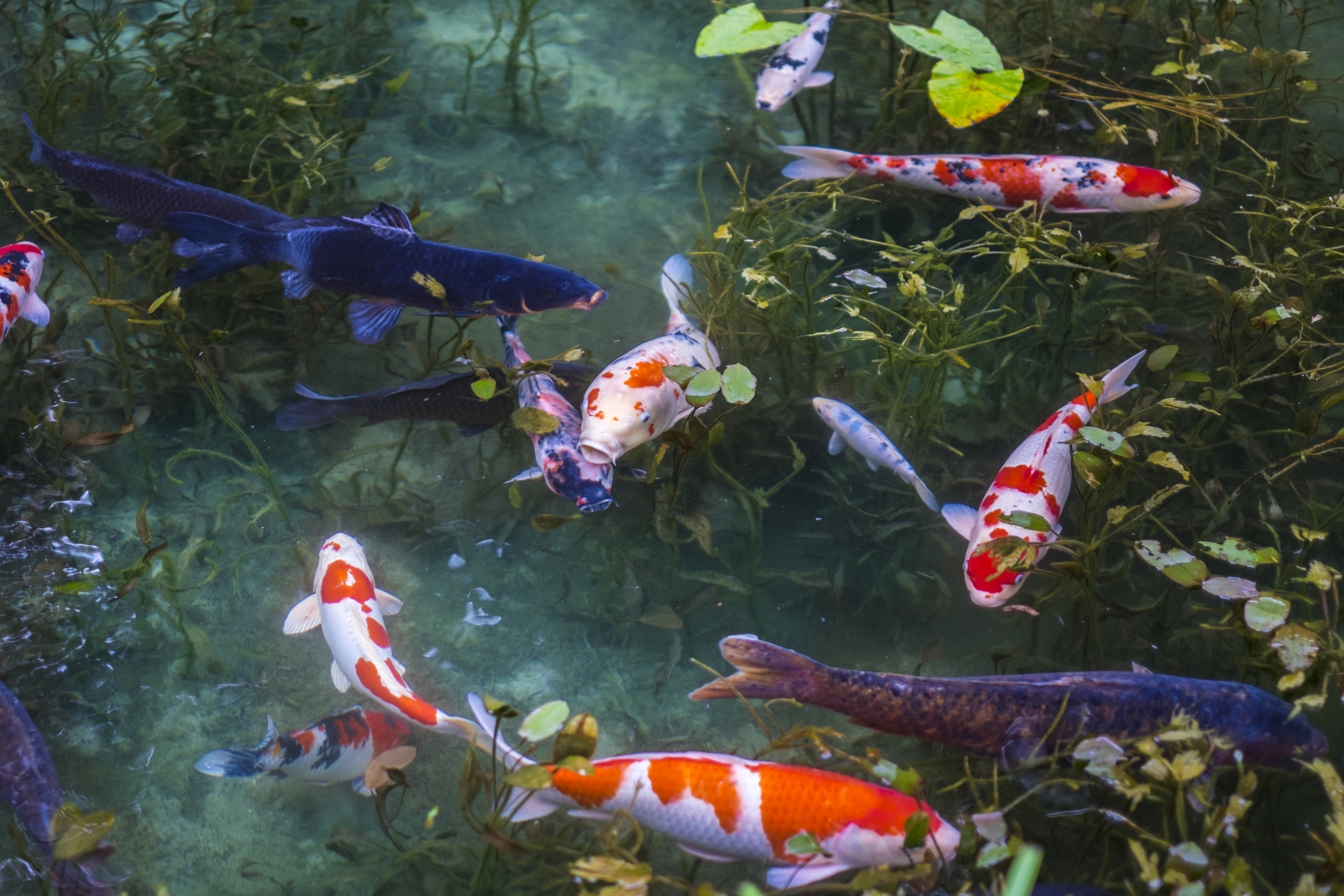Japan is well known for tea all around the world. It’s a healthy beverage that’s delicious and can be served both hot and cold. The tradition of tea in Japan goes back more than 1,000 years. Tea was first introduced to Japan from China in the 8th century and it was largely used as a medicinal beverage drunk among priests and the wealthy. Tea then became widely popular during the Muromachi Period (1333-1573), in which affluent members of society started hosting tea-drinking parties as a chance to show off their immaculate tea bowls and share their knowledge of the drink.
Around that time the father of modern tea traditions Sen no Rikyu (1522-1591) began advocating an austere, rustic simplicity. Tea ceremonies known as Sado (茶道) began to form a greater emphasis on spirituality and refinement, and tradition. Today Japan produces over a hundred different varieties and grades of tea. Although tea is widely associated with Sado ceremonies, today tea can be found almost everywhere at restaurants, convenience stores, and even in people’s homes. In this article, we’re going to go over the most popular types of tea in Japan and their usage.
1. Matcha (抹茶)
The most widely known tea in Japan is matcha. It’s a finely ground green tea produced from shaded plants, with high-quality matcha being grown in almost complete darkness. Since the green tea plant is left in the shade, this allows the plant to produce more chlorophyll giving the powder its bright green color and subtle flavor. After harvesting, only the leaves at the top are ground into a fine powder which is later whisked with hot water to make the tea. It’s most often used in tea ceremonies and is usually served along with Japanese wagashi confections. There are different grades of matcha, the highest being ceremonial grades which are used exclusively for tea ceremonies. The matcha in the ceremonies makes a thick tea, which has a grassy aroma and gives the drinker a refreshed palette.
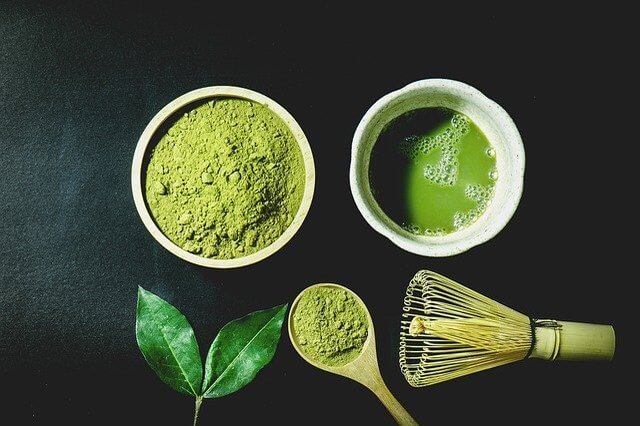
2. Hojicha (ほうじ茶)
Hojicha is a type of green tea that has been roasted at high temperatures over charcoal. It has a distinctly sweet and nutty flavor compared to matcha. The taste is very similar to roasted coffee beans. It first originated in the 1920s’ when tea merchants in Kyoto began roasting tea steams over charcoal. Unlike other green teas, the color of hojicha is more reddish-brown. The roasting process also decaffeinates the tea, making it a nice beverage to enjoy in the morning or night.
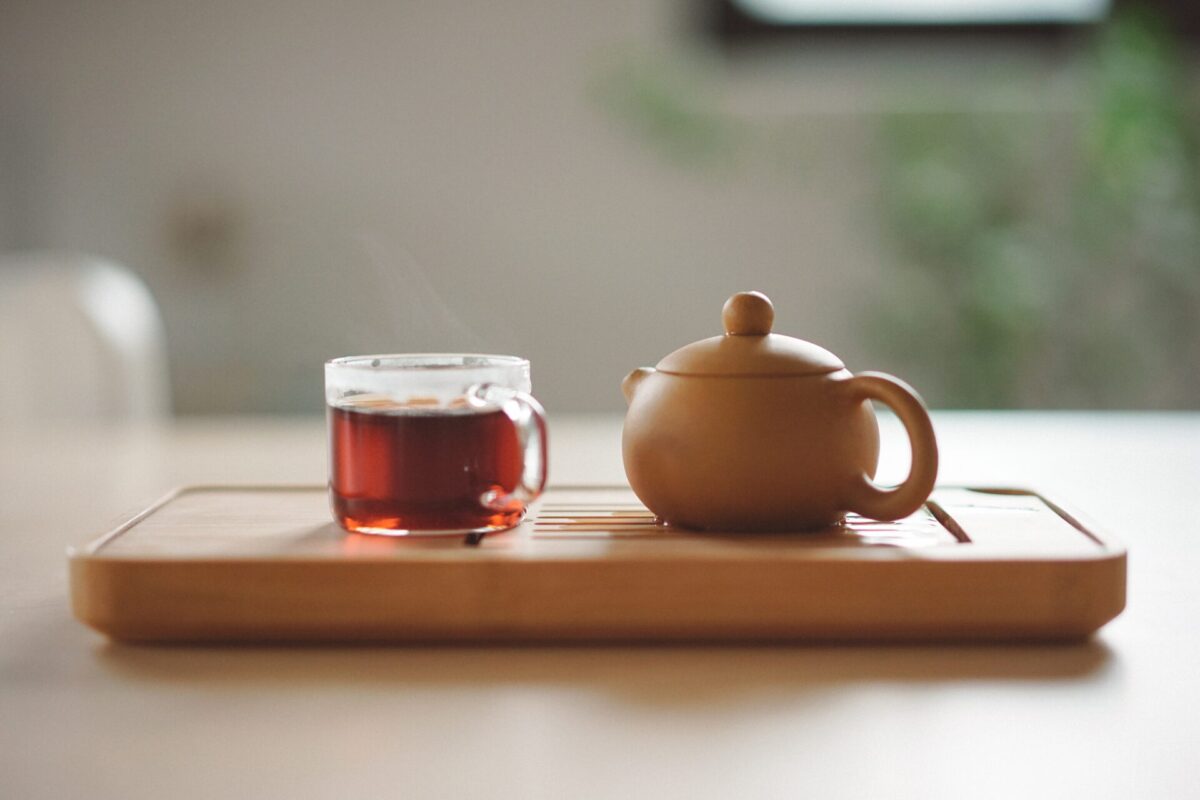
3. Sencha (煎茶)
Like matcha, sencha is a type of green tea that comes from the same plant species known as camellia sinensis. Sencha is much more consumed than matcha, about 80% of the green tea processed in Japan is sencha. It is produced from the first and second flushes of the stem, shoot, and some of the opened leaves of the green tea plant and then steam-pressed. The tea plants for sencha are grown in the full sunlight which gives the plant a darker color and more bitter flavor. The texture is also quite different; Matcha is a fine powder whereas Sencha are rolled leaves shaped like thin, straight needles. When brewed, it has a greenish golden color, very distinct from the matcha leaves.
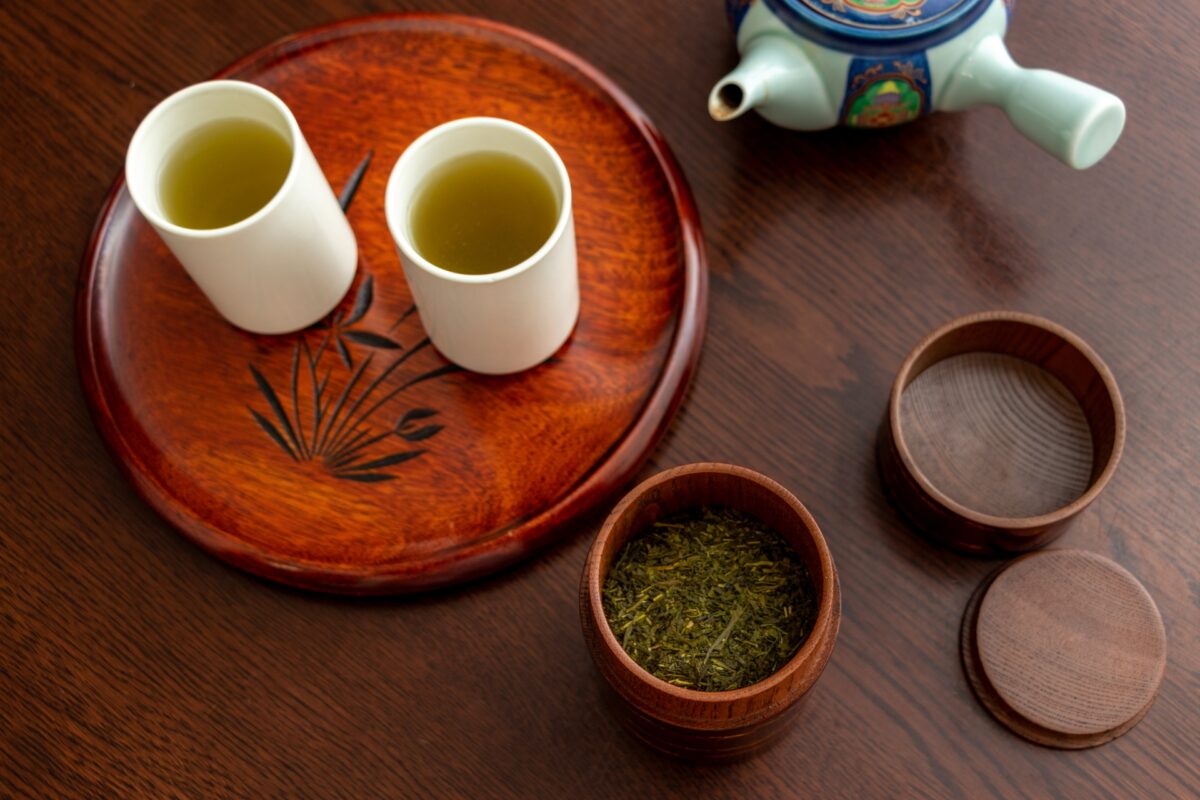
4. Mugicha (麦茶)
Mugicha is another roasted tea made from barley grains. Like hojicha, it has a toasty, nutty flavor with very little caffeine. The tea can be served hot or cold but it’s an especially popular summertime drink in Japan.
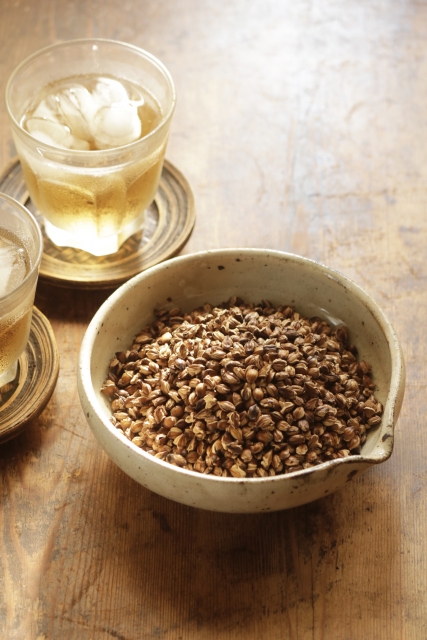
5. Kombucha (昆布茶)
In the west kombucha is widely known as a type of fermented drink made with yeast and bacteria as a health drink. However, in Japan kombucha is a completely different beverage. It is made from kelp known as kombu in Japanese. When the kelp is brewed it creates a rich and salty tea similar in taste to a broth. Kombucha is also typically combined with ume sour plums to add a bit of tartness to the drink.
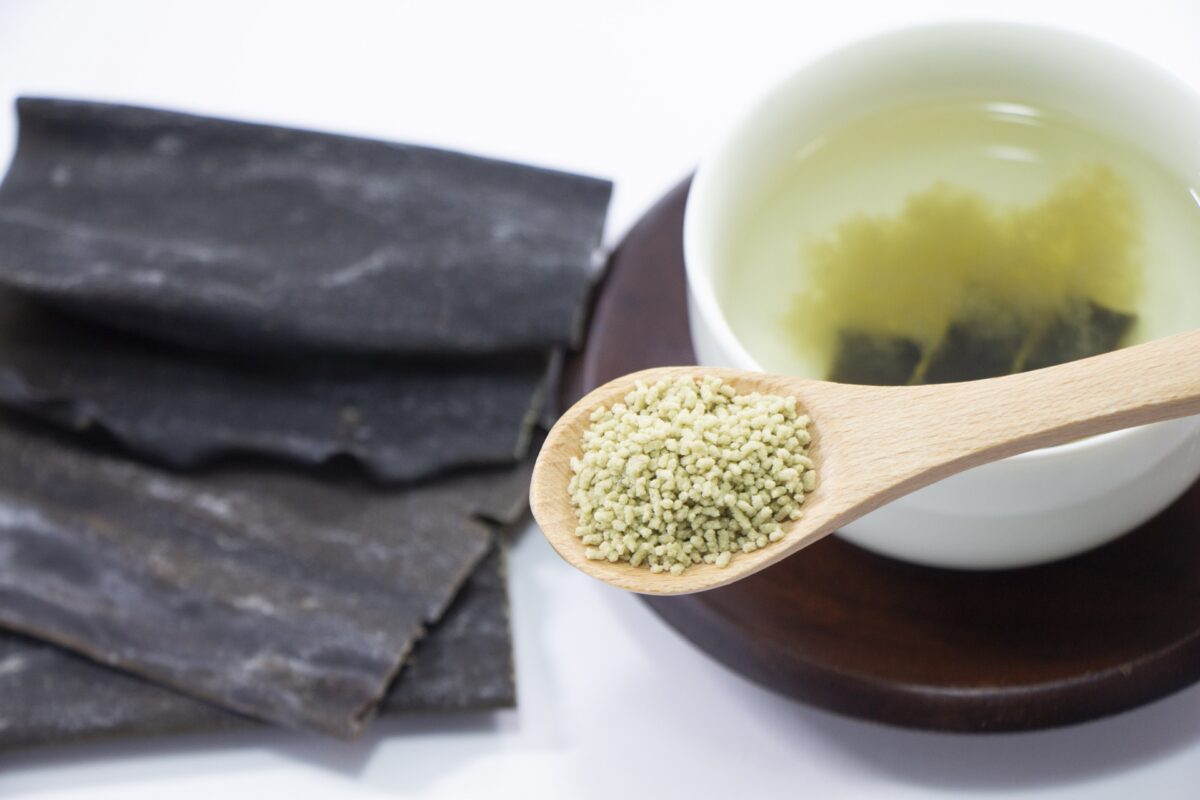
6. Sobacha (そば茶)
Buckwheat is typically used for soba noodles, but the kernels are also roasted to make sobacha or buckwheat tea. It has an earthy, wheaty flavor in addition to being caffeine-free. The drink also contains antioxidants and provides dietary fiber.
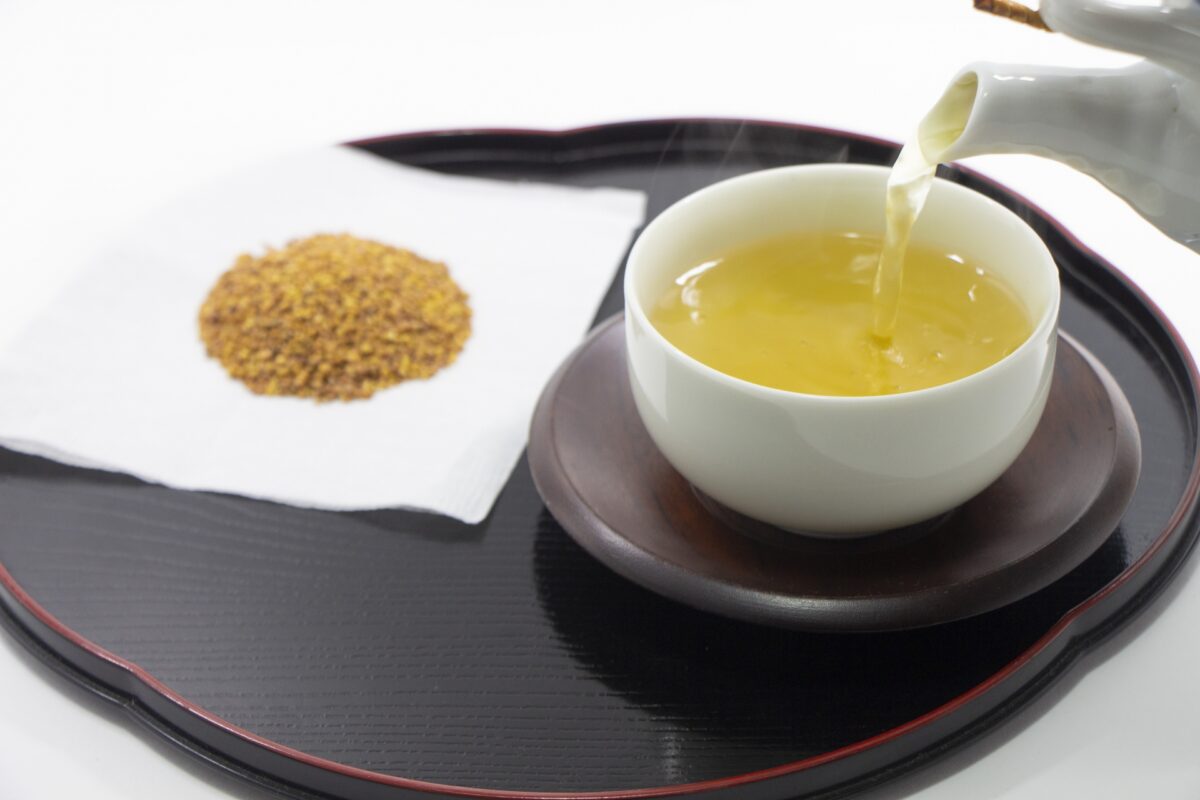
7. Gobocha (ごぼう茶)
Gobo is a type of burdock root, a type of vegetable typically used in Japanese cooking. The premium burdock roots can also be steam-roasted to make gobocha or burdock root tea. This caffeine-free beverage has an earthy flavor akin to a mushroom broth and is famous for containing lots of fibers and antioxidants. The tea gained popularity due to the belief that it has anti-aging properties and health benefits.
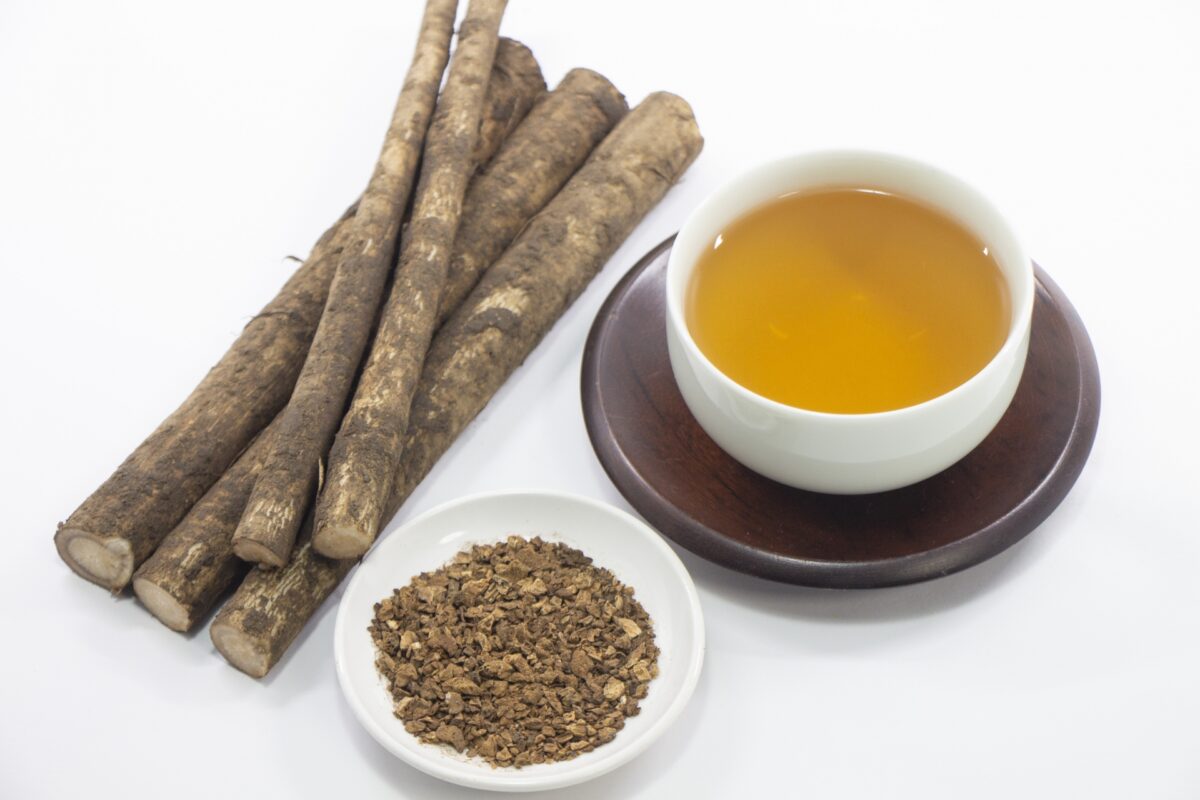
8. Genmaicha (玄米茶)
Genmai is brown rice in Japanese. Although brown rice isn’t as popular as regular white rice, genmaicha is a popular tea beverage found all over Japan. It’s made from green tea mixed with roasted rice and has a nutty flavor with the reduced bitterness of green tea. It can also be combined with other kinds of tea such as matcha or hojicha to add additional flavor.
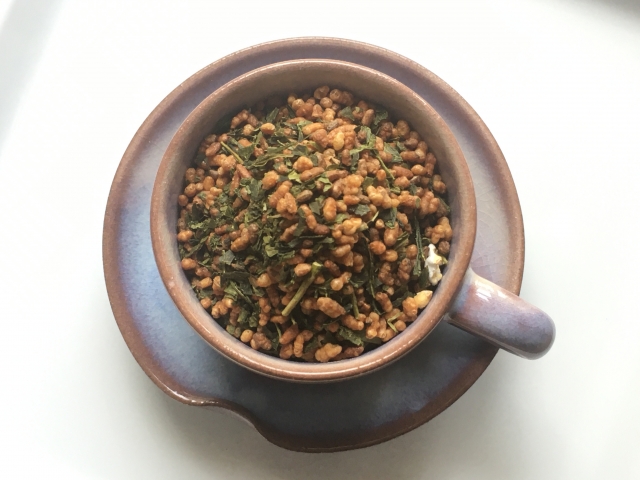
9. Gyokuro (玉露)
The name gyokuro translates to Jade dew in reference to the color of the tea leaves. It’s darker in color, and when brewed into a tea it has a slightly sweet flavor compared to matcha. Gyokuro is considered to be one of the highest grades of green tea in Japan. This tea is similar to sencha but at least 20 days before harvesting, the tea leaves are shielded from the sunlight giving the leaves it’s dark green color. Because of the labour intensive production process it is also the most expensive green tea. Fun fact, you can brew this tea at a temperature as low as 60°C (140℉)!

Tea and Kimono go hand in hand! Enjoy the Sips While Sporting Traditional Japanese Attire
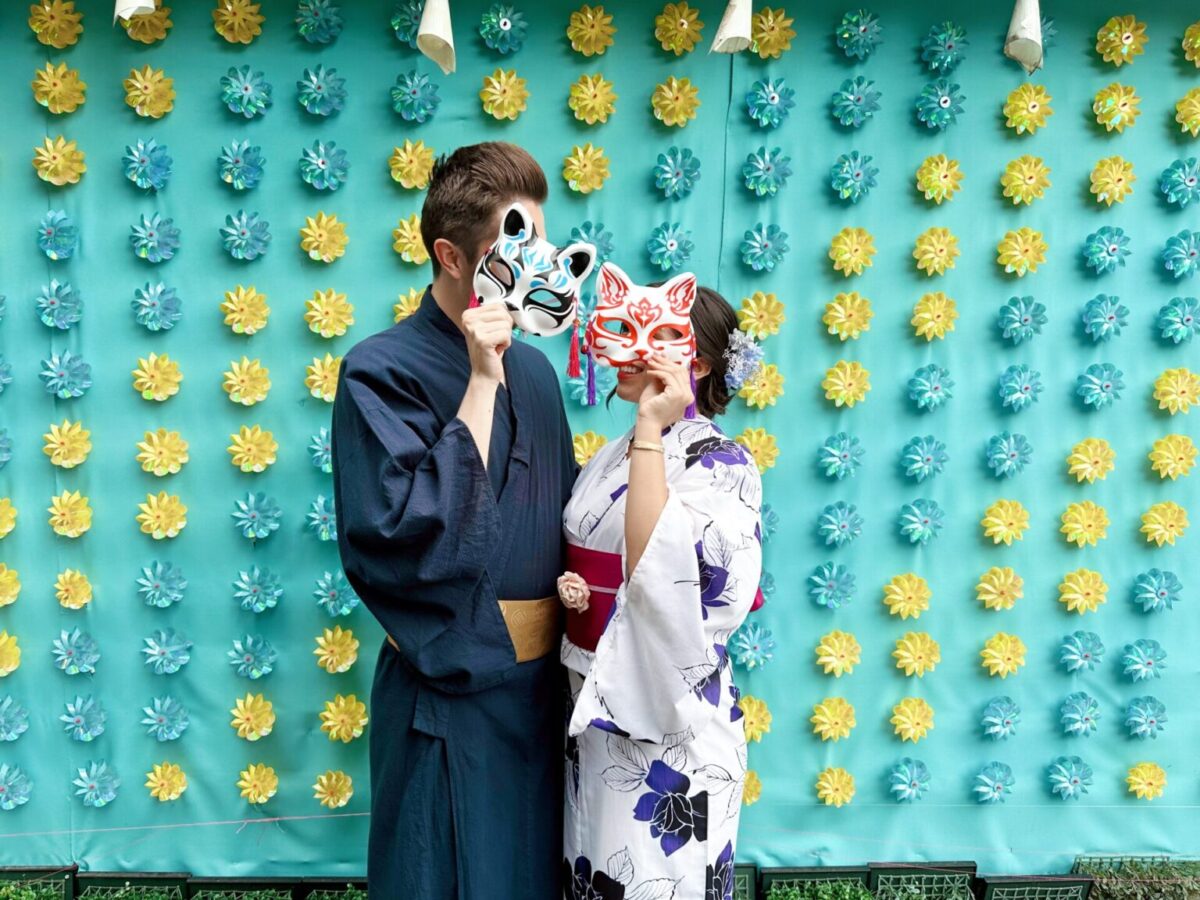
Enjoying Japanese tea can only be made more authentic and immersive by enjoying them in a Kimono! This traditional attire is an experience in its own and a profound facet of Japanese culture. Many must-see spots and experiences, like drinking tea, throughout Japan pair perfectly with kimono. Wargo, a reputable kimono rental company has got your back:
Tokyo
Kyoto
Osaka
Ishikawa
Saitama
Japanese teas have gained a lot of popularity around the world for their flavor and amazing health benefits. A fun way to discover more about the world of tea in Japan is to join a tea ceremony where you will also try freshly brewed tea. While these are the most common teas, there are over 100 different types of tea in Japan each with its own cultivation techniques, flavor, and even health benefits. If you’re new to Japanese culture we recommend giving one or all of these teas a try to see if you’re a fan.
Follow us on Instagram, Facebook and Twitter for more travel inspiration. Or tag us to get featured!
Happy traveling!
Other articles you might like

Jamila Brown is a five-year resident of Japan, teaching in the day and writing at night. She enjoys movies, reading, cosplaying, and eating good food in her downtime.
This post may contain some affiliate links. When you click through and make a purchase we may receive some commission, at no extra costs to you.
